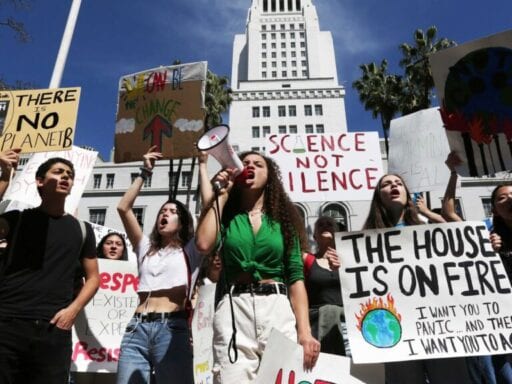Here’s what they said.
Almost all of the 2020 Democratic presidential candidates have figured out that climate change is a top priority for voters and have released detailed plans to confront it.
For the most part, the candidates agree that the US must reach net-zero carbon emissions by the middle of the century at the latest. But beyond that, it’s been tough to compare where candidates agree and where they stand apart.
The moderators of the three official primary debates so far spent about 35 minutes on climate change across more than seven hours. The discussion that did take place was haphazard and shallow. Activists have said the crisis deserves far more time and attention, but the Democratic National Committee voted down holding an official climate change debate and has barred contenders from participating in third-party debates.
However, the DNC left the door open to “forums” and “town halls.” CNN and MSNBC stepped up and devoted an unprecedented amount of airtime to questioning candidates about climate change. These discussions were useful but the serial interview format meant that candidates couldn’t challenge one another and viewers couldn’t easily compare all the proposals presented. Also, not everyone has hours and hours to devote to figuring out what executive orders candidates will sign, how they will hold greenhouse gas emitters accountable, and whether they would abolish the filibuster to accomplish their climate agenda.
So we asked every 2020 Democratic presidential campaign to respond to six key questions on climate change. This allows candidates to answer in some depth and our readers to compare their answers directly, an opportunity they will not get at the next debate on October 15.
Our questions are informed by two ideas:
- Candidates for president should be asked what they will do with the powers of the presidency to advance climate policy. While they may have interesting opinions on a whole range of subjects, presidential powers are circumscribed (despite what Trump seems to think). What ultimately matters is not what they will say or even what they believe but how they will use the limited powers available to them.
- Climate science is peripheral, not central, to climate politics. Candidates still feel obliged to say they “believe the science” on climate change, rather than simply talking about it the way they talk about other real things, like income inequality or diabetes. The climate discussion has been stuck on science for decades — just where conservatives want it. But it is power, not science, at issue in climate politics. Power, not differing assessments of the IPCC’s work, is what divides climate hawks from their opponents. Questions should focus on how to shift the balance of power.
To this end, here are the questions we put to every candidate:
- A president has only 100 days or so in which to pass a few key priorities. Where does climate change fall on your list of priorities when you step into office?
- If Democrats win a narrow majority in the Senate, will you advocate reforming or scrapping the filibuster?
- If Republicans control one or both houses of Congress and legislation stalls, what executive actions are you prepared to take to reduce carbon emissions?
- Some communities are more vulnerable to climate change than others. Some communities depend on fossil fuel industries more than others. What will you do to ensure that vulnerable communities are protected during the transition to clean energy?
- There is a nationwide push to hold fossil fuel companies accountable for their contributions to climate change and for their campaigns to mislead the public, via lawsuits, shareholder resolutions, and divestment. Do you support these efforts? What do you see as the government’s role in holding polluters accountable?
- The Pentagon has called climate change a “threat multiplier” in international conflict. At the same time, climate change stands to have the worst impacts on countries that contributed least to the problem. How should the US brace for global climate chaos? And what will you do to help other countries prepare for the impending disruption?
You can read more about our reasoning behind these specific questions here.
We’ve received responses from Joe Biden, Elizabeth Warren, Bernie Sanders, Kamala Harris, Pete Buttigieg, Beto O’Rourke, Tom Steyer, Amy Klobuchar, and Michael Bennet. Here are their answers.
—Umair Irfan and David Roberts
Author: Susannah Locke
Read More



